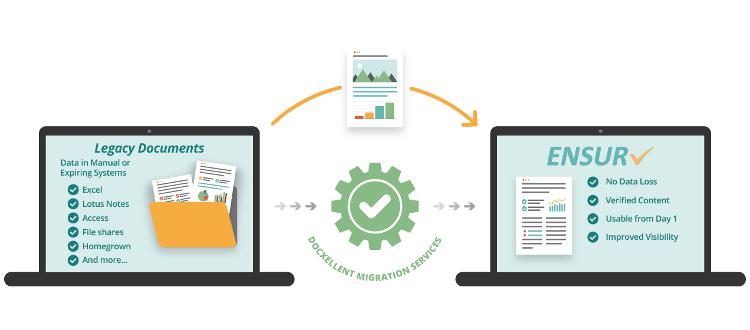
Technology plays a pivotal role in driving efficiency, productivity, and growth for small and medium-sized businesses (SMBs). This blog explores the significance of technology for SMBs and focuses on leveraging innovative solutions to save time and resources. We'll delve into the importance of adopting the right tech solutions tailored to SMBs' unique needs to maximize benefits and drive sustainable success.
Streamlining Operations with Technology
Automating Repetitive Tasks
Identifying tasks that are repetitive, time-consuming, and prone to human error is the first step in automating processes within SMBs. These tasks often involve data entry, report generation, invoice processing, email responses, and scheduling appointments. By analyzing workflows and identifying bottlenecks, SMBs can pinpoint areas where automation can deliver the most significant impact on efficiency and productivity.
Automation offers several benefits for SMBs, including saving time, reducing errors, improving accuracy, and freeing up resources for more strategic activities. By automating repetitive tasks, SMBs can streamline workflows, increase productivity, and focus on high-value tasks that require human expertise and creativity. Additionally, automation enhances consistency and compliance by ensuring that processes are executed uniformly and according to predefined rules and standards.
Examples of commonly automated processes in SMBs include:
- Email marketing campaigns: Automating email marketing campaigns enables SMBs to schedule emails, segment contacts based on demographics or behavior, and personalize content to engage customers more effectively.
- Inventory management: Automating inventory management processes helps SMBs track stock levels, reorder products when inventory runs low, and minimize stockouts or overstock situations.
- Employee onboarding: Automating the employee onboarding process streamlines tasks such as form completion, document signing, and training enrollment, ensuring a seamless experience for new hires while reducing administrative burden for HR personnel.
- Customer support: Automating customer support processes with chatbots or AI-powered virtual assistants enables SMBs to provide immediate responses to customer inquiries, resolve common issues, and escalate complex queries to human agents when necessary, improving customer satisfaction and retention rates.
Implementing Cloud-Based Solutions
Cloud computing offers numerous advantages for SMBs, including:
- Scalability: Cloud-based solutions can scale up or down based on demand, allowing SMBs to adjust resources and capacity as their needs change without significant upfront investment.
- Flexibility: Cloud-based solutions offer flexibility in terms of access, allowing users to work from anywhere with an internet connection and on any device, enhancing mobility and productivity.
- Cost-effectiveness: Cloud-based solutions eliminate the need for on-premises hardware, maintenance, and upgrades, reducing upfront capital expenditures and ongoing operational costs associated with IT infrastructure.
- Disaster recovery and data security: Cloud providers offer robust security measures, data encryption, and disaster recovery capabilities to protect SMBs' data from cyber threats, natural disasters, and hardware failures.
Implementing cloud-based solutions enables SMBs to reduce costs associated with hardware procurement, maintenance, and upgrades. By leveraging subscription-based pricing models, SMBs can pay for cloud services on a monthly or usage basis, avoiding large upfront investments and aligning expenses with usage. Additionally, cloud-based solutions eliminate the need for dedicated IT staff to manage on-premises infrastructure, further reducing overhead costs and freeing up resources for strategic initiatives.
Utilizing Project Management Software
Efficient project management is critical for SMBs to deliver projects on time, within budget, and according to specifications. Project management software enables SMBs to plan, organize, allocate resources, track progress, and collaborate effectively on projects of all sizes and complexities. By implementing project management software, SMBs can improve project visibility, optimize resource utilization, and ensure alignment with business goals and objectives.
When selecting project management software, SMBs should consider the following features:
- Task management: Ability to create, assign, prioritize, and track tasks, deadlines, and dependencies to keep projects on schedule.
- Collaboration tools: Features such as file sharing, real-time chat, and team collaboration spaces facilitate communication and collaboration among project team members.
- Gantt charts: Visual representation of project timelines, milestones, and dependencies helps SMBs track progress and identify potential bottlenecks or delays.
- Resource management: Tools for resource allocation, workload balancing, and capacity planning enable SMBs to optimize resource utilization and ensure project success.
- Reporting and analytics: Comprehensive reporting and analytics capabilities provide insights into project performance, identify trends, and inform decision-making to drive continuous improvement and project success.
Cybersecurity and Data Protection
Cybersecurity is paramount for small and medium-sized businesses (SMBs) to protect sensitive data, maintain customer trust, and safeguard against cyber threats. Despite their size, SMBs are increasingly targeted by cybercriminals due to their perceived vulnerability and valuable data assets. A cybersecurity breach can have devastating consequences for SMBs, including financial losses, reputational damage, legal liabilities, and operational disruptions. Therefore, prioritizing cybersecurity is essential for SMBs to mitigate risks, comply with regulations, and ensure business continuity.
Implementing cybersecurity measures on a budget
Implementing cybersecurity measures doesn't have to break the bank for SMBs. There are several cost-effective strategies SMBs can adopt to enhance their cybersecurity posture, including:
- Conducting regular security assessments: Performing periodic security assessments helps SMBs identify vulnerabilities, assess risks, and prioritize remediation efforts to strengthen their defenses effectively.
- Patch management: Keeping software, operating systems, and applications up to date with the latest security patches and updates helps SMBs mitigate vulnerabilities and protect against known exploits.
- Endpoint protection: Deploying endpoint protection solutions such as antivirus software, firewalls, and intrusion detection systems helps SMBs detect and block malware, ransomware, and other cyber threats targeting endpoints.
- Network security: Implementing basic network security measures such as secure Wi-Fi networks, VPNs (Virtual Private Networks), and network segmentation helps SMBs protect their networks from unauthorized access and data breaches.
- Data backup and recovery: Regularly backing up critical data and systems and storing backups in secure offsite locations helps SMBs recover quickly from data loss or ransomware attacks and minimize downtime.
Training employees on cybersecurity best practices
Employee training and awareness are essential components of a comprehensive cybersecurity strategy for SMBs. Educating employees about cybersecurity risks, threats, and best practices empowers them to recognize and respond to potential threats effectively. Training programs should cover topics such as phishing awareness, password hygiene, social engineering tactics, data handling policies, and incident response procedures. By fostering a culture of cybersecurity awareness and accountability, SMBs can significantly reduce the likelihood of human error and security incidents.
Take the First Step to Smart SMB Tech
DocXellent offers ENSUR Lite, an affordable Document Management System (DMS) designed specifically for SMBs with robust cybersecurity features. ENSUR Lite provides advanced security controls, encryption, access controls, audit trails, and compliance features to protect sensitive documents and ensure data integrity. With ENSUR Lite, SMBs can streamline document management processes, improve collaboration, and enhance data security without breaking the budget.
Contact DocXellent today to learn more about ENSUR Lite and discover how it can streamline your document management processes and support your business's growth journey.





























